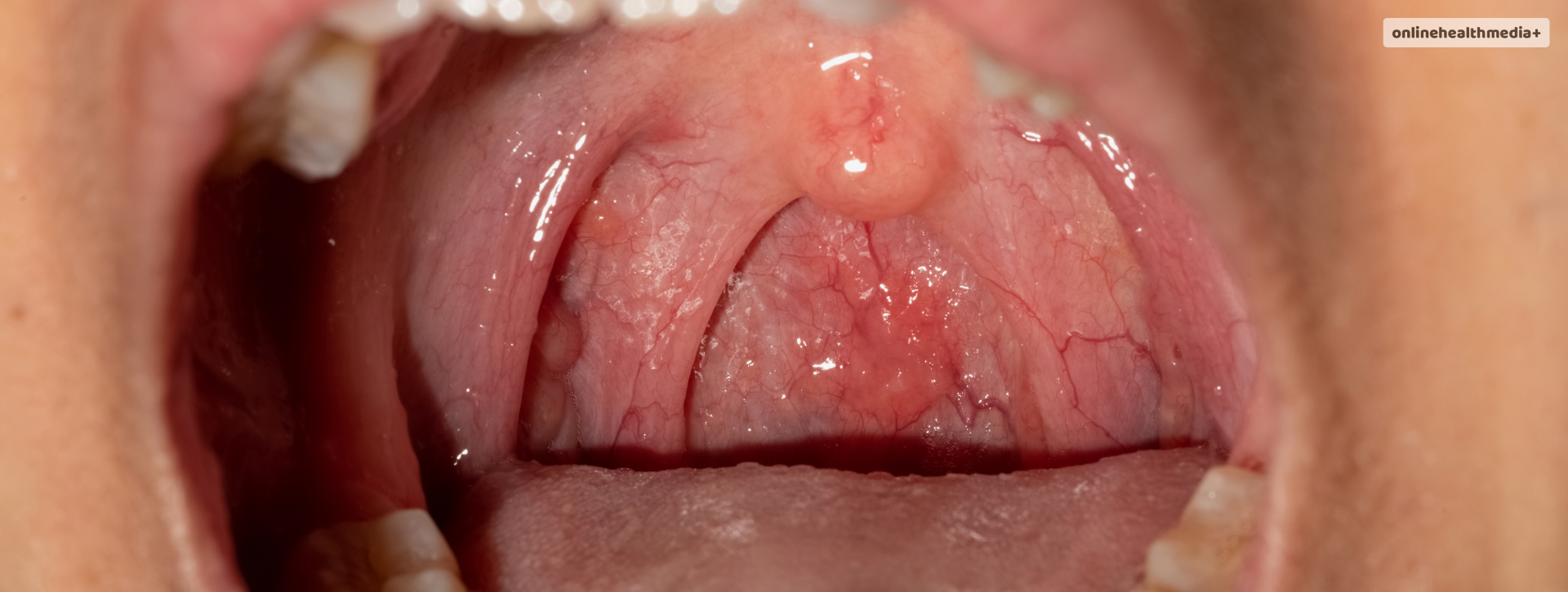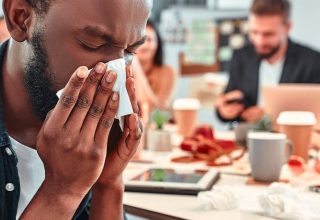Chlamydia In Throat? Here Are All The Symptoms And Treatment Options You Need To Try.
Chlamydia in throat can feel worse if you are experiencing a lingering irritation. This may feel like sore throat in the beginning.
However, it isn’t. This is also nothing similar to cobblestone throat. The typical idea of chlamydia is of a sexually transmitted disease of the genital area.
Unfortunately, that is not the case, you can receive a diagnosis of chlamydia in throat. This happens when your throat is exposed to the causative organism during oral sex.
Don’t worry, I have good news for you! This type of chlamydia is easy to cure when an early diagnosis is received.
This article will cover the symptoms, how this occurs, its transmission, diagnosis and how you can get tested.
The usual treatment options for any STI are antibiotic treatment. So, this article will
What Is Chlamydia?
Chlamydia is a common sexually transmitted infection. It is caused by a bacteria called Chlamydia trachomatis.
Chlamydia can infect both men and women and often has no symptoms. Here are some interesting things to know about it:
- Chlamydia bacteria are spread through vaginal, oral, or anal sex with someone who has chlamydia. Ejaculation does not have to occur for the infection to spread.
- You can also get chlamydia in your throat by performing oral sex on someone who is infected.
- Common Signs and Symptoms: Many people with chlamydia don’t notice any symptoms.
- When there are symptoms, they may show up 1 to 3 weeks after exposure. Signs of chlamydia in your throat can include:
- Sore throat
- Fever
- Swollen tonsils
You could also have no symptoms at all but still spread the infection. bacteria can damage your reproductive system even if you don’t notice problems right away.
Getting tested is important since chlamydia is easy to cure, when caught early. Tell your doctor about any oral, vaginal, or anal sex so they can recommend appropriate STI testing.
Chlamydia testing often involves a urine sample or a swab from the infected area. sample like the throat or genitals. Rapid home test for chlamydia using urine or swabs tests is also available.
With prompt treatment, the long-term health effects of a chlamydia infection can be avoided. Left untreated, it may lead to pelvic inflammatory disease, infertility or ectopic pregnancy in women.
How Chlamydia Can Infect the Throat
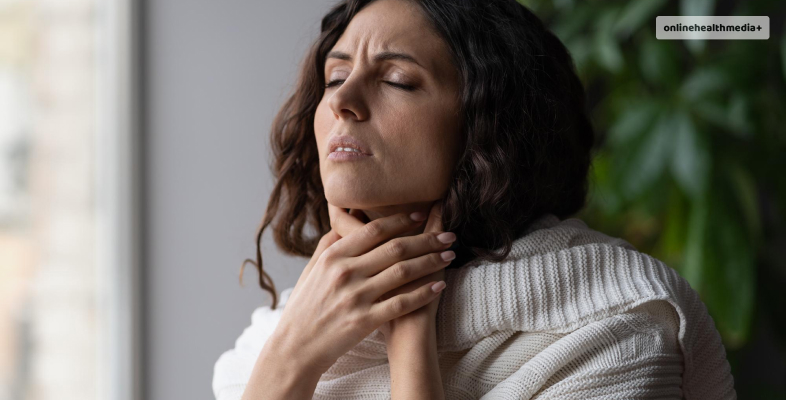
Chlamydia is a common sexually transmitted infection (STI) that usually affects the genitals and urethra. However, chlamydia can also infect the throat when infected fluids come into contact with the throat during oral sex.
Here’s what you should keep in mind:
• If your partner has chlamydia in their genitals, the bacteria can be transmitted to your throat if you perform oral sex on them. You likely won’t have any symptoms if chlamydia infects your throat. Most people have no symptoms, even with genital infections.
• Without treatment, chlamydia in the throat can persist for months or longer. It can be transmitted back to your partner’s genitals the next time vou have oral sex (if any microorganism is left)
• Although uncommon, a chlamydia infection the throat can potentially spread into the lungs, causing pneumonia with symptoms like chest pain, cough, fever and shortness of breath. This would warrant prompt medical attention.
Getting tested is important if:
• Your partner was recently diagnosed with chlamydia or diagnosed with another STI.
• You engage in unprotected oral sex with new partners whose STI status you aren’t certain about.
• You develop potential symptoms of an upper respiratory infection like pneumonia.
Tips to make your condition better:
Chlamydia is easily cured with common antibiotics like azithromycin or doxycycline. Be sure to follow your doctor’s advice and take all medication as prescribed.
Avoid sex for one week after treatment and until your partner has also been treated to prevent reinfection.
With prompt treatment and avoiding oral sex until cured, throat infections respond well to antibiotics and complications are unlikely.
Practicing safe sex by using condoms or dental dams can also help reduce your risk of throat and genital infections.
Chlamydia Symptoms In Throat
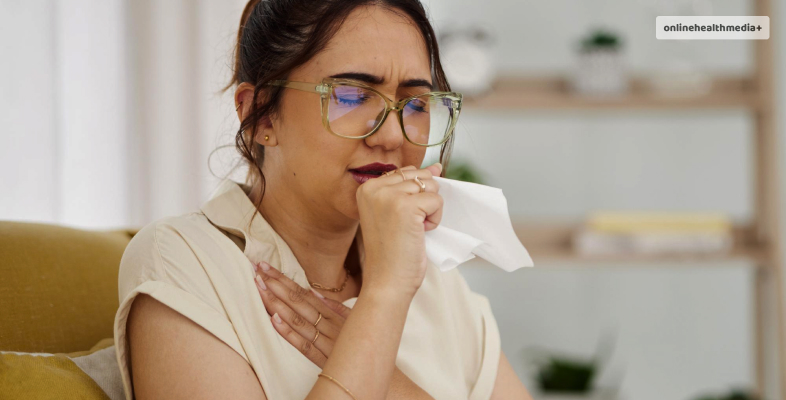
If you think you have chlamydia in your throat, here are the symptoms to look out for:
• Your throat may be a bit sore, like with a mild cold or flu. It may hurt more when you swallow.
You may notice a slight fever. Your temperature may be about 100 degrees or slightly higher.
• Your lymph nodes in your neck may become swollen or tender to the touch.
• Many people with chlamydia in the throat have no symptoms at all.
Some other possible symptoms could include:
• Feeling like you want to clear your throat more often. It feels scratchy or itchy inside.
•A cough that won’t seem to go away.
• Feeling overly tired or run down.
• Losing your voice or having trouble talking.
Overall, chlamydia symptoms in your throat will be very mild. The infection is almost always asymptomatic.
However, you should still get tested if:
• You’ve engaged in unprotected oral sex with a new partner.
• Your partner tested positive for chlamydia or other STIs.
• You experience any unexplained sore throat or cold symptoms.
It’s important to treat chlamydia so you don’t spread it or risk complications like pneumonia. Medications can get rid of the infection quickly and easily.
So, you should watch out for a slightly sore throat, swollen neck glands, fever, cough and fatigue. But even without symptoms, get checked. Chlamydia is sneaky, but very treatable.
How Chlamydia in the Throat Is Diagnosed
If you have symptoms such as a sore throat or trouble swallowing, your doctor will want to test you for chlamydia in the throat. Here is what you can expect:
• Your doctor will use a cotton swab to take a sample from your throat. This may feel slightly uncomfortable, but it only takes a few seconds.
• The sample will be sent to a lab to test for chlamydia using a nucleic acid amplification test (NAAT). This is an accurate test that looks for the bacteria’s genetic material.
• In 1-3 days, your doctor will have the test results. A positive result means you have a chlamydia infection in your throat that needs antibiotic treatment.
• Your doctor may also recommend testing for other sexually transmitted infections like gonorrhoea, which can infect the throat too.
If the throat swab test is negative but your doctor still suspects chlamydia, additional tests may be done:
• A urine sample may be tested since chlamydia often infects the urinary tract and genitals at the same time. If you’ve had oral sex, your doctor might also swab the rectum or vagina to check for chlamydia.
Getting tested is important if you have any symptoms or have had unprotected oral sex. Chlamydia is treatable with antibiotics. The sooner you get diagnosed, the lower your risk of complications.
How To Treat Chlamydia In The Throat
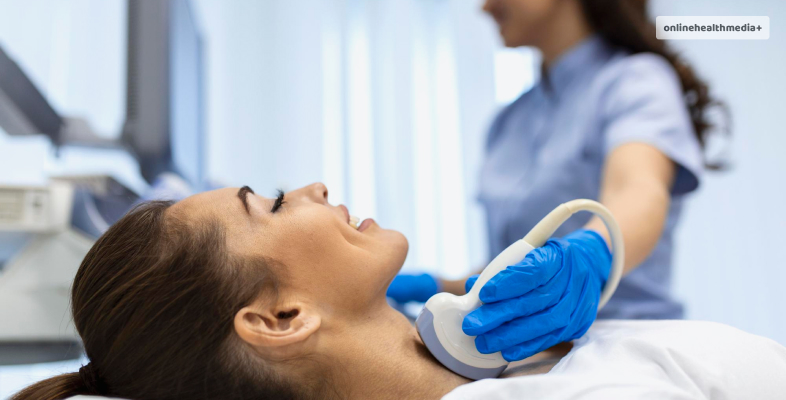
If you have tested positive for chlamydia in your throat, the good news is that it can be cured with prescription antibiotics.
Here’s what you need to know about getting treatment:
Visit Your Doctor
Make an appointment with your doctor, nurse practitioner, or a sexual health clinic right away. Explain your positive chlamydia test so they can prescribe the correct medication.
Take All Antibiotics as Directed
The most common treatment is a 7-day course of the antibiotic doxycycline. This is usually taken as 2 pills on the first day followed by 1 pill daily for the next 6 days.
Make sure to finish your full prescription, even if symptoms go away. Stopping antibiotics early can lead to the infection not being fully cured.
Avoid Sexual Contact Until It’s Gone
You should avoid having oral, anal, or vaginal sex for 7 days until the infection has cleared.
Your partner(s) will also need screening and treatment to prevent you from passing it back and forth or getting reinfected.
Get Tested Again
It’s recommended to have a test of cure about 3 weeks after finishing your antibiotics.
This follow-up test checks that the infection is fully cured before resuming sexual activity.
Treating chlamydia promptly prevents spreading and more severe complications. While uncomfortable, throat infections respond very well to antibiotics. Taking them properly along with some common precautions will have you cured in no time.
Natural Remedies to Help Clear Chlamydia from the Throat
If you’ve been diagnosed with chlamydia in your throat, there are some natural remedies that may help reduce symptoms and speed up your recovery time when combined with antibiotics prescribed by your doctor.
Gargle with salt water. Mix 1/2 teaspoon of salt into glass of warm water. Gargle and spit a few times a day to help ease a sore throat and reduce inflammation. The saltwater acts as an antimicrobial rinse to help clear bacteria.
Drink licorice root tea. Licorice root has soothing, anti-inflammatory properties that can coat and calm an irritated throat. Steep 1 teaspoon of dried licorice root in a cup of hot water for 10 minutes. Drink up to 3 cups a day.
Take olive leaf extract. Some research shows olive leaf extract has antimicrobial and immune-boosting abilities. Follow dosage instructions on the packaging. Check with your doctor first since it can interact with certain medications.
Load up on vitamin C. Vitamin C supports immune health and wound healing. Eat citrus fruits, red peppers, broccoli and strawberries or take a supplement if recommended by your healthcare provider.
Increase your intake of yogurt. Probiotic-rich yogurt contains “good” bacteria that can help beat chlamydia and other “bad” bacteria causing infection in your throat and genitals. Choose plain, unsweetened yogurt.
Avoid irritants. Steer clear of spicy foods, caffeine, alcohol and anything else that could further aggravate your throat while you heal. Stick to soft, cool foods like Soup, eggs and ice cream.
Important to note:
Remember to finish any antibiotics prescribed by your doctor. Natural remedies can support healing but don’t replace necessary medication.
Tell your doctor if symptoms worsen or don’t improve within 1-2 weeks. Throat infections left untreated can spread and cause serious complications. Get retested after 3-6 months to confirm chlamydia has cleared.
Lifestyle Changes to Support Throat Chlamydia Recovery
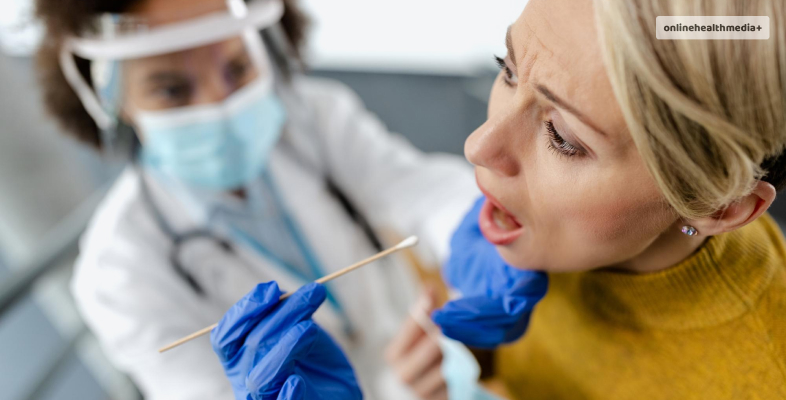
Chlamydia in your throat can be challenging to recover from, but it is possible with the right treatment and lifestyle changes. Here are some steps to help speed up your recovery and support your health going forward:
• Continue any medications your doctor prescribes. Take all doses as directed, even if your symptoms resolve. This is critical to fully eliminate the infection and reduce risk of complications.
• Avoid sexual contact until your doctor gives the all-clear. That includes oral, vaginal, and anal sex. Wait at least 7 days after your partner has completed treatment as well.
• Connect with your recent sexual partners to encourage them to get tested. They may also need treatment to prevent reinfection or further spread. You can do this anonymously through your healthcare provider if preferred. Quit smoking and limit alcohol intake. Smoking compromises your immune system and can make infections harder to fight. Alcohol can irritate your throat and affect your ability to heal.
• Get plenty of rest. Aim for 7-9 hours of sleep per night and take naps during the day if your body needs it. Your body needs this rest to direct its energy toward recovery. Reduce stress too. Stay hydrated. Drink lots of water, along with warm teas and broths if they feel soothing. Avoid irritants like coffee, soda, citrus, and spicy foods for now.
• Eat a balanced diet with plenty of fruits and vegetables. Foods packed with vitamins A, C, and zinc support immune health. Yogurt with active cultures may also help restore healthy bacteria after antibiotics.
Focus on letting your body heal while being kind to yourself mentally and emotionally too. With the right care, your throat will recover fully in time. Reach out to loved ones or a counselor if you need support.
Preventing Chlamydia in the Throat From Spreading or Returning
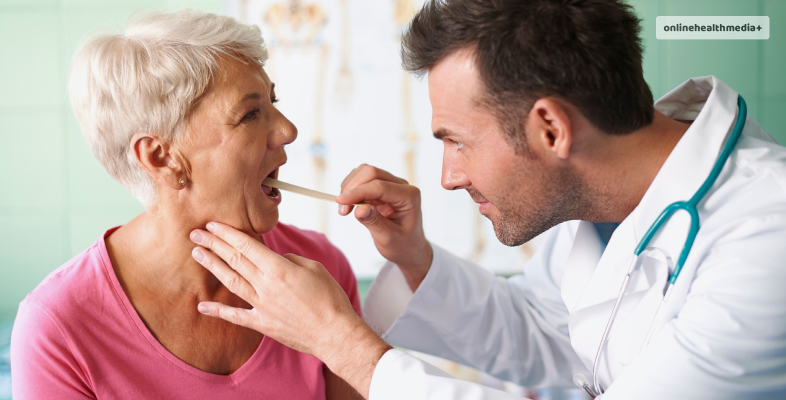
Chlamydia infecting your throat can spread or return if you are not careful. Here are some tips to prevent infection or reinfection:
• Refrain from oral and other sexual contact until your infection is cured. Let any partners know you have been diagnosed so they can get tested and treated if necessary.
• Take all medications prescribed by your doctor to cure the infection. Do not stop early even if symptoms resolve. This helps ensure the bacteria are fully eliminated.
• Schedule a test of cure 4 weeks after treatment ends. This folloW up test ensures the infection is gone completely. Get retested at 3 months as well.
• Use barrier protection like condoms or dental dams during oral sex in the future to minimize risk of reinfection.
• Limit your number of sexual partners to further reduce risk factors. Get tested regularly, especially when entering new relationships.
• Do not share food, drinks, utensils or toothbrushes with others, as this can transmit bacteria.
• Maintain proper hygiene habits, especially handwashing.
• Strengthen your immune system through rest, nutrition and stress management. A healthy body fights infection more effectively.
• Return for a new round of testing and treatment immediately if symptoms reoccur. Do not wait or attempt self-treatment.
Staying vigilant about prevention, using barrier protection consistently, and communicating with partners about your recent infection are the best ways to avoid spreading or catching chlamydia in the throat again.
Maintaining open communication with your healthcare providers for follow up testing, symptom monitoring and any questions is also essential. Consistent prevention now prevents complications down the road.
Conclusion
So, if you have engaged in oral sex and develop a sore throat or other throat symptoms afterward, don’t ignore them.
Get checked for chlamydia and other STIs. Even if tests come back negative, continue taking precautions during all sexual activity.
Protect yourself and your partners by using barriers like condoms or dental dams. At the first sign of pain or discomfort, see your healthcare provider.
Throat chlamydia is treatable with antibiotics if identified early. Stay safe out there, get tested regularly, and encourage your partners to do the same. This will lead to earlier diagnosis and treatment, reducing risk for you and others down the line.
Have any more queries? Let us know in the comments below!
Also read
- 9 Tips To Succeed On The PANCE Exam.
- A Critical Look At The Safety Of Pain Relievers.
- Tips For Buying And Using Diabetes Supplies.
